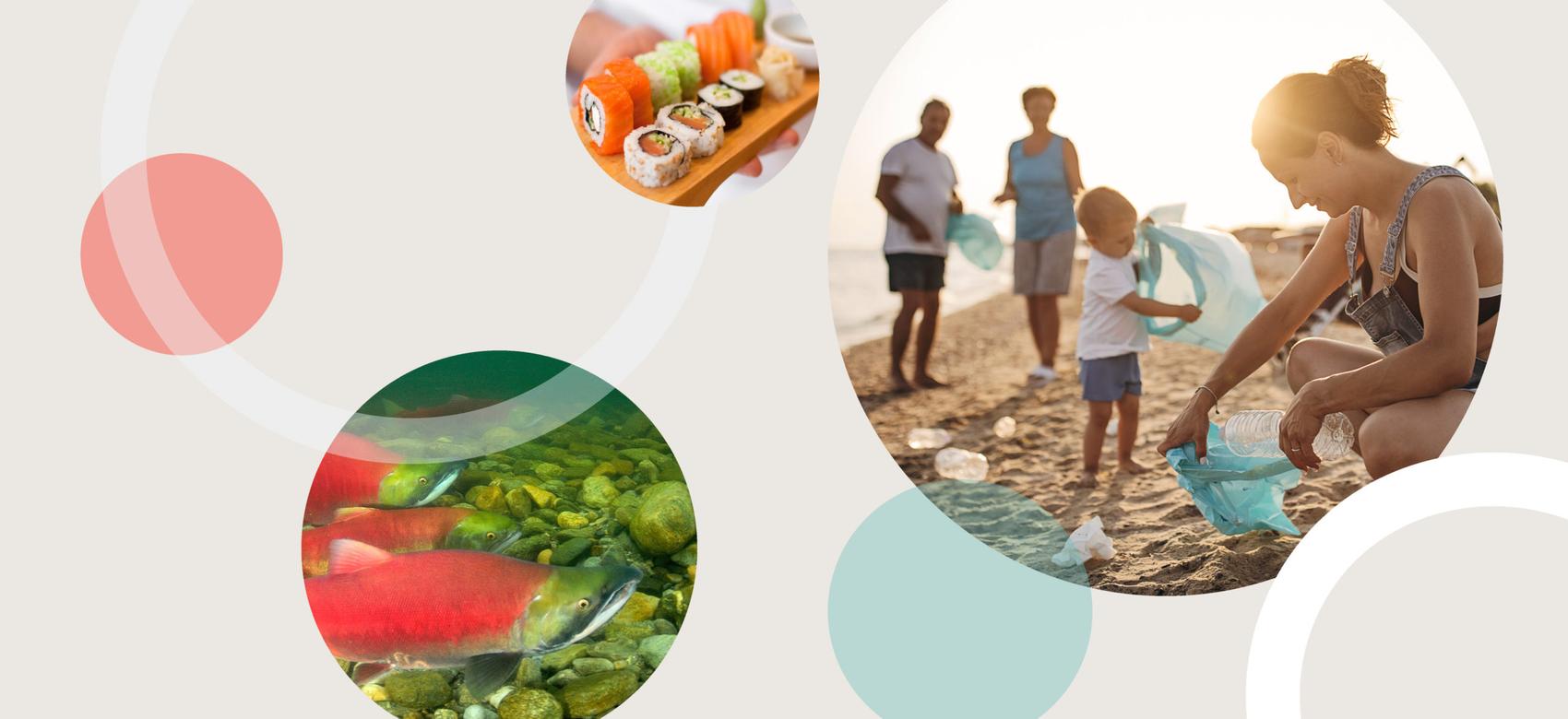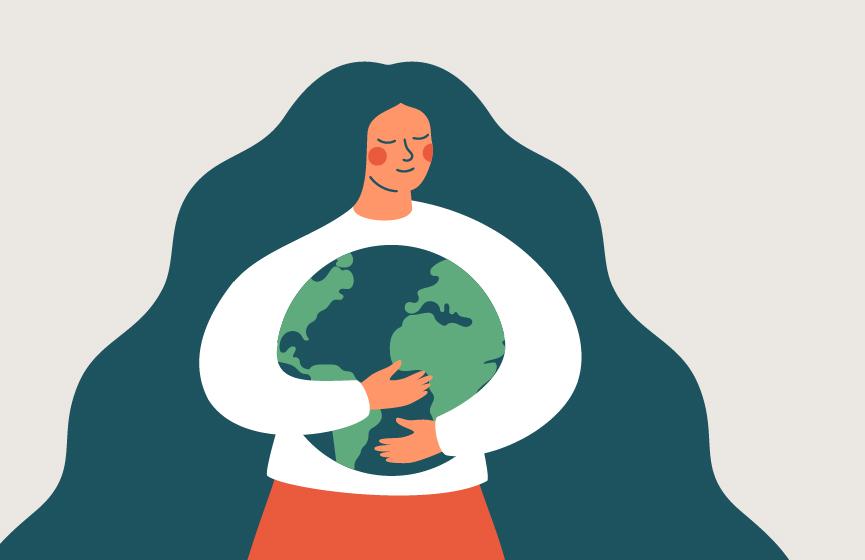5 things you can do to help BC’s marine ecosystems
By Jessica Werb

Dr. William Cheung, director of UBC’s Institute for the Oceans and Fisheries, and UBC zoology professor Dr. Christopher Harley offer ideas for taking action
In the face of declining fish stocks like sockeye salmon, marine heatwaves and massive coastal die-offs, it can sometimes feel as though protecting our ocean ecosystems is a hopeless task. But there are things we can do.
Practice sustainable seafood consumption
Look for the Ocean Wise symbol when selecting seafood, and learn about which species are considered a safe choice by consulting the Ocean Wise list of recommendations. “Reducing non-climatic stresses is important. Things like over-fishing can exacerbate the impacts of climate change on marine life,” says Dr. Cheung.
Reduce your plastic use
This includes single-use straws and bags, which add stress to marine ecosystems. “Reducing non-climatic stresses is really important, and it’s also good for biodiversity and resource management,” says Dr. Cheung. “Participate in a local shoreline cleanup, or organize one of your own.
Advocate for measures that protect marine diversity
“If you have all of the species still present on the playing field, then the effects of warming are less damaging,” says Dr. Harley. “You can stump for change on that front and say, ‘What can we protect? Where can we put a marine park, or how should we think about changing harvest regulations?’”
Adds Dr. Cheung: “Each individual actually has a lot of power in contributing to these solutions. It’s important for individuals to support government policies that address climate change.”

Lower your carbon footprint
“Every little bit helps,” says Dr. Harley. “Bicycle a little bit more, or take the bus instead of driving. Find ways to throw out less food.” Do your part: even eating your leftovers means there’s less rotting food releasing greenhouse gasses into the atmosphere.
Get literate about oceans and climate
“I’ve found that most people do not have a good awareness of some of the basics about oceans and ecosystems, let alone their connections to climate change” says Dr. Cheung. Learn more at Canadian Parks and Wilderness Society, SeaBlue Canada and Oceana Canada.
Learn why BC is facing a steep decline in sockeye salmon
Jessica Werb is a freelance writer for UBC Brand and Marketing. This article was published on August 22, 2022. Feel free to republish the text of this article, but please follow our guidelines for attribution and seek any necessary permissions before doing so. Please note that images are not included in this blanket licence.


